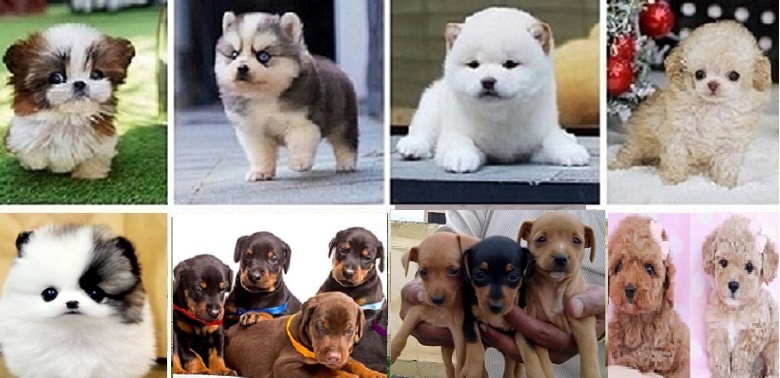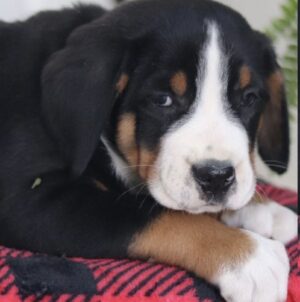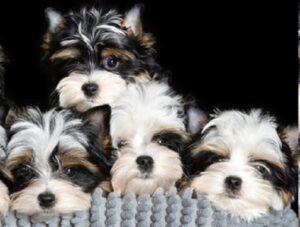Description
The Miniature Pinscher, often referred to as the “Min Pin,” is a small yet energetic breed that captivates the hearts of many dog enthusiasts. With its agile build and distinctive appearance, the Miniature Pinscher is often mistaken for a miniature version of the Doberman Pinscher. However, this breed stands tall in its own right, with a rich history and unique traits.
This article will delve into the origins, physical characteristics, temperament, care needs, training requirements, common health issues, and the Miniature Pinscher’s suitability as a family pet. Whether you are considering adopting a Min Pin or simply want to learn more about this spirited breed, this comprehensive guide will provide you with valuable insights into the captivating world of the Miniature Pinscher.
1. Introduction to Miniature Pinscher
1.1 What is a Miniature Pinscher?
Thinking about getting a pint-sized pup with a big personality? Look no further than the Miniature Pinscher, or as some call them, the “Min Pin.” Despite their name, these little guys are not actually mini versions of the Doberman Pinscher. They are a breed of their own and can pack quite a punch in a small package.
1.2 Miniature Pinscher vs Doberman Pinscher
Let’s clear up any confusion: the Miniature Pinscher is not just a shrunken Doberman Pinscher. While they may share some physical characteristics, like their sleek coats and pointed ears, the two breeds have their own distinct traits. The Miniature Pinscher is smaller, more compact, and has a spunky attitude that can rival any big dog. So, if you’re looking for a pint-sized bundle of energy and mischief, the Min Pin might be the perfect fit for you!
2. Origin and History
2.1 Historical Background of Miniature Pinscher
The Miniature Pinscher has a rich history that dates back to several centuries ago. They were originally bred in Germany, where they were known as the “Zwergpinscher,” meaning “Dwarf Pinscher.” These little dynamos were initially bred to hunt rats and other vermin on farms, making them excellent hunters despite their small size.
2.2 Development of the Breed
Over time, the Miniature Pinscher’s purpose shifted from a working dog to a beloved companion. The breed’s fiery temperament and lively nature charmed dog enthusiasts, leading to their recognition by kennel clubs in the late 19th century. Today, the Miniature Pinscher continues to win hearts and bring joy to households around the world.
3. Physical Characteristics and Appearance
3.1 Size and Proportions
Don’t let their small stature fool you—the Miniature Pinscher is a well-built and muscular breed. Standing at around 10 to 12.5 inches tall at the shoulder, they may be pint-sized, but they make up for it in personality. Their compact bodies are well-balanced, with a proud stance that commands attention.
3.2 Coat types and Colors
The Miniature Pinscher boasts a short and smooth coat that requires minimal grooming. Their coats are sleek and shiny, hugging their bodies like a second skin. As for colors, the Miniature Pinscher comes in a variety of shades, including solid red, black and tan, chocolate, and even blue. With such a range, there’s a color to suit every taste!
3.3 Distinctive Features: Ears, Tail, and Eyes
One of the Miniature Pinscher’s notable features is its erect and sharply pointed ears. These perky ears give them an alert and attentive expression, as if they’re always ready for action. Their tails are usually docked, giving them a distinctive look. When it comes to their eyes, they are alert and sparkling, just like their curious and mischievous personalities.
4. Temperament and Personality Traits
4.1 Energetic and Fearless Nature
Prepare yourself for a bundle of energy! The Miniature Pinscher is an active and lively breed that thrives on physical and mental stimulation. They are fearless little daredevils who have no concept of their small size. They’ll fearlessly take on any challenge or adventure, making them excellent companions for those who love an active lifestyle.
4.2 Playful and Curious Personality
If you’re looking for a dog that will keep you on your toes, the Miniature Pinscher fits the bill. They have an insatiable curiosity and a mischievous streak that can turn your world upside down—in the best way possible. Their playful nature and love for toys and games make them a joy to have around.
4.3 Bonding with Family and Socialization
The Miniature Pinscher is a loyal and affectionate companion, forming strong bonds with their family members. They thrive on attention and enjoy being in the spotlight, so be prepared for their entertaining antics and unwavering loyalty. Proper socialization from an early age will help ensure they get along well with other pets and people.
So, if you’re ready to bring home a tiny tornado of fun and love, the Miniature Pinscher might just be the perfect addition to your family! Just don’t be surprised if they end up ruling the roost with their big personality in a small body.
5. Miniature Pinscher Care and Grooming
5.1 Exercise and Activity Requirements
Miniature Pinschers may be small in size, but they are big on energy! These little dynamos thrive with regular exercise and activity. Daily walks and playtime in a securely fenced yard are essential to keep them happy and healthy. They also enjoy interactive toys and mental stimulation activities to prevent boredom.
5.2 Feeding and Nutrition
When it comes to feeding your Miniature Pinscher, it’s important to provide a balanced and nutritious diet. High-quality dog food formulated for small breeds is recommended. Be mindful of their portion sizes to prevent overfeeding, as Miniature Pinschers can be prone to weight gain. Consult with your veterinarian to determine the appropriate feeding schedule and diet for your furry friend.
5.3 Coats and Grooming Needs
Miniature Pinschers have short, sleek coats that are relatively low maintenance. Regular brushing helps to keep their coat looking neat and shiny. They shed minimally, making them a great choice for individuals with allergies. Nail trimming, ear cleaning, and dental care should also be a part of their grooming routine. Don’t forget to shower them with love and affection while you’re at it!
6. Training and Exercise Requirements
6.1 Basic Obedience Training
Miniature Pinschers are intelligent and eager to please, making them trainable companions. Basic obedience training is important to establish rules and boundaries. Start with simple commands like sit, stay, and come, and gradually progress to more advanced training. Positive reinforcement techniques and consistency are key to their success.
6.2 Mental Stimulation and Enrichment
In addition to physical exercise, Miniature Pinschers thrive on mental stimulation. Engage their minds with puzzle toys, interactive games, and treat-dispensing toys to keep them mentally sharp. Training sessions that challenge their problem-solving abilities are also beneficial. Remember, a tired Miniature Pinscher is a well-behaved Miniature Pinscher!
6.3 Physical Exercise and Playtime
Miniature Pinschers are active dogs that enjoy regular exercise. Daily walks, interactive play sessions, and off-leash playtime in safe areas are essential for their well-being. They have a natural inclination to explore, so make sure they have a secure environment to burn off their energy. Just be prepared for their endless enthusiasm and boundless joy!
7. Common Health Issues and Veterinary Care
7.1 Genetic Health Conditions
Like all breeds, Miniature Pinschers are prone to certain genetic health conditions. These may include patellar luxation, heart problems, and Legg-Calve-Perthes disease. Regular veterinary check-ups and health screenings can help detect any potential issues early on. Remember, a proactive approach to your pup’s health is always a good idea!
7.2 Vaccination and Preventive Care
Keeping your Miniature Pinscher up to date on vaccinations is crucial for their overall health and well-being. Regular deworming, flea and tick prevention, and heartworm medication are also essential. Consult with your veterinarian to create a preventive care plan tailored to your dog’s specific needs and lifestyle.
7.3 Regular Check-ups and Monitoring
Routine veterinary check-ups are an important part of responsible pet ownership. Your veterinarian will perform physical examinations, monitor your Miniature Pinscher’s weight, and address any concerns you may have. Regular dental cleanings and professional grooming are also recommended to maintain their overall health and hygiene.
8. Miniature Pinscher as a Family Pet
8.1 Compatibility with Children and Other Pets
Miniature Pinschers can make great family pets, but it’s important to introduce them to children and other pets gradually and under supervision. While they have a loving and affectionate nature, their small size makes them more vulnerable to rough play. Teaching children to interact gently and respectfully with the dog is crucial to ensure a harmonious coexistence.
8.2 Apartment Living and Adaptability
Despite their energetic nature, Miniature Pinschers can adapt well to apartment living. However, they do require regular exercise and mental stimulation. Ensuring they have access to outdoor playtime and providing them with interactive toys can help keep them happy and content in smaller living spaces.
8.3 Miniature Pinscher as a Companion and Guard Dog
Miniature Pinschers are known for their loyalty and protective instincts. They make excellent companion dogs and can be surprisingly good guard dogs despite their small size. They are always ready to alert you to any potential intruders with their loud bark. Just be prepared for their fierce determination to protect their loved ones, even if it’s just from a passing squirrel!
In conclusion, the Miniature Pinscher is a fascinating breed that offers a perfect blend of charm, energy, and loyalty. From its rich history to its distinctive appearance and spirited personality, the Min Pin has carved out a special place in the hearts of dog lovers worldwide. By understanding their unique needs and providing proper care, training, and love, Miniature Pinschers can thrive as cherished family pets. If you’re seeking a small but mighty companion that will keep you entertained and bring endless joy to your life, the Miniature Pinscher may be the perfect choice. Embrace the adventure of owning a Min Pin, and enjoy the boundless love and companionship they have to offer.
FAQ
1. Are Miniature Pinschers suitable for families with children?
While Miniature Pinschers can be affectionate and playful, their small size and high energy levels may not always make them the best match for families with very young children. It is important to supervise interactions between the Min Pin and children to ensure everyone’s safety. Early socialization and training can help establish a positive relationship between the breed and children.
2. Do Miniature Pinschers require a lot of exercise?
Yes, Miniature Pinschers are an active breed and require regular exercise to keep them physically and mentally stimulated. Daily walks, playtime, and interactive toys are essential to meet their exercise needs. However, it is important to strike a balance and avoid excessive exercise, especially in extreme weather conditions, as Min Pins are prone to overheating.
3. Do Miniature Pinschers get along well with other pets?
With proper socialization and early introductions, Miniature Pinschers can coexist harmoniously with other pets, including dogs and cats. However, it is important to note that some Min Pins may display a strong prey drive towards smaller animals. Supervised interactions, gradual introductions, and consistent training are vital to ensure compatibility and a peaceful coexistence between the Miniature Pinscher and other pets.
4. Are Miniature Pinschers prone to any specific health issues?
Like any breed, Miniature Pinschers can be predisposed to certain health issues. Some common health concerns among Min Pins include patellar luxation, Legg-Calve-Perthes disease, progressive retinal atrophy (PRA), and thyroid problems. Regular veterinary check-ups, a balanced diet, and proper exercise can help minimize the risk of these health issues. It is recommended to consult with a reputable breeder or veterinarian for more information about the breed’s specific health concerns.
https://en.wikipedia.org/wiki/Puppy
https://en.wikipedia.org/wiki/Dog
https://en.wikipedia.org/wiki/Dog_breed
https://dogs.ie/
https://www.nextdaypets.com/directory/dogs/sale/
https://www.lancasterpuppies.com/
https://www.puppies.co.uk/
https://www.europuppy.com/
https://www.pets4homes.co.uk/sale/puppies/
https://www.puppyspot.com/puppies-for-sale
https://www.pups4sale.com.au/
https://petsforhomes.com.au/puppies-dogs-for-sale/
https://puppies.com/
https://www.freeads.co.uk/uk/buy-sell/pets/dogs/
https://www.gumtree.com/pets/pets-for-sale/dogs/uk/srpsearch+puppies
https://www.preloved.co.uk/classifieds/pets/dogs
https://www.marshallspetzone.com/196-pups-and-kittens
https://www.ukpets.com/dogs-for-sale
https://www.petfinder.com/dogs-and-puppies/adoption/finding-a-dog/puppies-for-sale/
https://marketplace.akc.org/puppies
https://waratahpuppies.com.au/puppies-and-dogs-for-sale/
https://petclassifieds.com/ad_category/dogs/
https://puppyfinder.com/
https://www.petmd.com/dog/general-health/teacup-dogs-puppies
https://www.thesprucepets.com/cute-teacup-dog-breeds-4587847
https://www.dailypaws.com/living-with-pets/pet-compatibility/cutest-puppies
https://www.goodhousekeeping.com/life/pets/g4531/cutest-dog-breeds/
https://www.canadapups.com/
https://www.ckc.ca/Choosing-a-Dog/PuppyList/Default.aspx
https://getapuppy.ca/
https://www.kijiji.ca/b-dogs-puppies/canada/c126l0




